What's worse, a bad hire or a bad hiring process?
What do you do when you’re looking for a new employee who can hit the ground running, and instead they just…hit the ground?
We know there’s a high cost associated with a bad hire, but how often do we stop and assess the process that led to those costs in the first place? All too often, we’re lured into the trap of blaming the hire over the hiring process.
A single bad hire is damaging enough, but if it’s a consistent problem (a problem that can cost you three times the base salary of your new hire), then it may be time to look at the context rather than the error itself.
Failing to do this can inadvertently multiply your business costs, whether this is the cost of your time, your employee morale, or your bottom line, it all adds up to a staggering amount of wasted potential.
The Value of Time
You can’t buy it, unless you’re speaking metaphorically, so spending it must be done wisely. Bad hiring results in a waste of what precious time you do have. If your new candidate falls short of your expectations, the cost is more than just lost wages, as you’re potentially risking lengthening your lead times across the entire organisation.
Don’t forget the cost of onboarding and the disruption to your existing team either – your people are reliant on the company making the right choices when it comes to recruitment.
A hiring process should mitigate the odds of this happening, not increase them. Processes and people are inexorably linked in the realm of business, and those that can pilot a plan into action are likely to benefit from a sharper competitive edge.
Lower Staff Morale
A bad hire will likely impact the morale of the team, hindering productivity, engagement, and innovation. When you can’t fill the void with a competent and suitable candidate, it’s your team that has to pick up the slack. While they might be happy to take on this role in the short term, keep getting that hire wrong and your most talented staff may start searching for a more stable environment.
Damaged Reputation and Loss of Business
A bad hire will not demonstrate the high levels of customer service normally associated with your product or service, which can result in negative publicity.
It’s common knowledge that ‘word of mouth’ is one of the most effective ways to build a company’s reputation, but this can be a double-edged sword, especially if you deliver a poor candidate experience.
There’s nothing to stop a disgruntled candidate from sharing their experience with their friends, regardless of your best PR efforts.
Monetarily Miserable
A bad hire might be inevitable at some point, but a bad hiring process ensures these points are far more frequent, ultimately injuring your bottom line. How can you hope to achieve business growth if you’re being held back by swathes of bad hires enabled by a set of poor processes?
According to data from the Recruitment and Employment Confederation, a poor hire for a middle-management role, who is on a salary of £42,000, can cost a company up to £132,000. If you’re relying on a broken process to build an entire senior team, your potential for monetary woe becomes abundantly clear.
What Does a Bad Process Look Like?
Aside from manifesting in the productivity and effectiveness of your teams, the evidence for a bad process isn’t always clear.
Here are 7 of the biggest process crimes:
Badly written, inaccessible job ads – The hiring process starts way before you even read your first CV. It starts with the way you export your employer brand and the language you use to write your job ads. Job ads need to be accessible, informational, and attractive, otherwise, you limit your talent pool.
Poor Candidate Management – A desirable candidate experience is essential. You need to show your interest as much as they do on their end, so keeping in touch and clearly defining timelines are critical to your mission success. In today’s world of digital tech solutions, candidate management doesn’t need to be a problem.
Unclear Expectations – Have you said what you expect from someone in the role? What does their day-to-day look like, what are they working towards, and where are they going to be positioned within the company? If your candidate doesn’t know what they’re going to be doing, how can you expect them to get a good start?
Not Including Salary Expectations – Transparency is key. Let your candidates know how much you’ll pay them. Plus, you probably don’t want to waste time on a candidate who won’t accept the salary you’re offering.
Inadequate Onboarding – A solid onboarding process can be the difference between a head start and a flying stop. A report in HR News noted that a good onboarding process can improve new hire retention by a huge 82%.
Bad Interview Practices – Everyone is unique, and so too are their needs. If your interviews can’t account for the diverse world we live in, you’re effectively limiting your talent reach. Interview training for management is one of the best ways around this, as is placing the candidate first. Breaking from the norm with your questions can help you keep your candidate engaged – Why not say, ‘What’s a question you’d like to answer that we haven’t asked.’ Ideally, every candidate should leave with a real desire to work at your company – it's great for your employer's reputation. On the other hand, a bad interview experience can end up deterring future prospects from applying.
Tedium – Lengthy multi-stage interviews, mandatory in-person meetings and complicated tasks are not the way of the future. We’re in a candidate-driven market, which means candidates have more options than ever before. Making it as easy as possible for them to engage with your interview process is a must.
How Trinnovo Consulting Can Help
If you’re having a hard time working out what’s wrong with your hiring process, you may need to reevaluate your strategy. At Trinnovo Consulting, we are passionate about building better businesses. Growth and transformation are among the hardest stages in the life of any organisation, and we're here to help you through it.
How Does it Work?
We diagnose your entire talent cycle, bench-marking you against best practices, highlighting your successes, and pinpointing where you can unlock and enhance performance. We then build you a personalised impact report, providing you with evidence-based recommendations to reignite your talent.
We want your talent strategy and subsequent processes to do more than just align with your business goals – our aim is to inspire innovation! We’ll develop a strategy that increases the attractiveness of your organisation, boosts the engagement, commitment, and contribution of your people, and enhances a sense of belonging that means your top talent sticks around.
Through our bespoke training, we can ensure that your people have the competency and capability to accelerate your strategy. Our comprehensive training encompasses the critical skills and understanding required throughout the talent cycle, allowing you to enhance the strengths of your people in a way that fits your unique business needs.
We support you with the integration of your new way of working, turning what you know into what you do, and bringing your business ambitions to life through feedback, coaching, nudges, and framework design to ensure lasting change and maximum impact.
If you’re in need of support, or you have any questions about Trinnovo Consulting at all, reach out to the team today – we’d love to help you save your business money, and ensure that your next hiring (and every subsequent hiring) adds real value to your company. We can embed the change that delivers the rewards your investments warrant.
A bad hire and a bad hiring process are almost one and the same, and while the former might come along occasionally, a good process can ensure that it’s never the norm, and that those who are hired, get the support they need to thrive. When your people thrive, so does your business.

